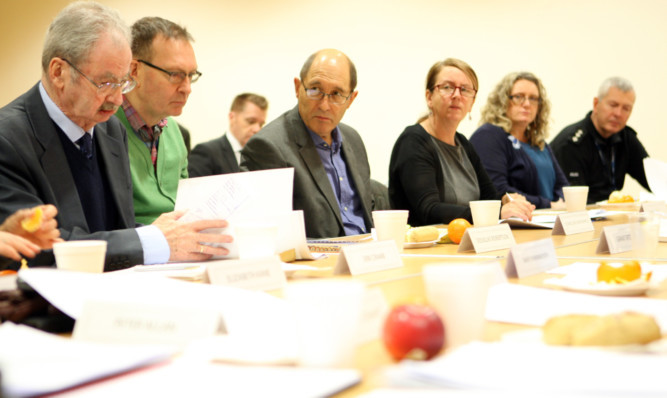Dundee should refuse to force unemployed people to do unpaid work in exchange for benefits, the city’s poverty task force said.
The Government’s Workfare programme makes people on benefits carry out unpaid work to gain experience to help them gain a permanent job.
Failure to complete a programme can see benefits cut.
Dundee’s Fairness Commission, set up to find ways to tackle poverty and inequality in the city, is urging employers not to accept workers through the Workfare programme.
The idea was put forward when the commission met last night and unanimously supported by health, council, education and voluntary service workers on the commission.
Ginny Lawson, of the Money Advice service at the Brooksbank Centre, said: “People are sent to work for free but it costs them for travel and childcare costs.
“We should take a stand and say ‘no one in Dundee is going to do Workfare’.
“The commission should be asking employers in Dundee not to support Workfare.”
Alison Henderson, chief executive of Dundee and Angus Chamber of Commerce, said if people volunteered for Workfare because of the work experience or training it could provide that would be fine, but compulsory placements were like “zero hours contracts”.
She also called for more to be done to enforce the living wage in the city.
Campaigns calling for a boycott of Workfare exist, naming and shaming employers, but Dundee could be one of the first local authorities in Scotland to reject the scheme outright.
Edinburgh, West Dunbartonshire and Inverclyde have already signed up to a Unite Union pledge to shun workfare.
Convener Jimmy Black, also a Dundee City councillor, leads the multi-agency group and said he would be happy to bring the idea to the council.
Meanwhile, commission member and retired minister Erik Cramb, who represents Dundee Pensioners Forum, said it was “sinful” that people with disabilities are being hit by the worst of the austerity and benefit cuts.
NHS Scotland’s Gerry McLaughlin added: “The poverty and inequality experienced in Dundee aren’t inevitable but they are undesirable, and there are things we can do to that will make a difference.”
Dundee’s Fairness Commission was started in April and among the topics it has dealt with are child poverty, education, housing disability, food and fuel security as well as in-work poverty and the living wage.
Mr Black said all the topics were connected with welfare reform, and the biggest problems affecting those using the system were the complexity of it and the “ham-fisted way it has been cobbled together”.
The commission will consider solutions to be brought to the table as it reaches the end of its work and a report with recommendations is expected to be published in the summer.
